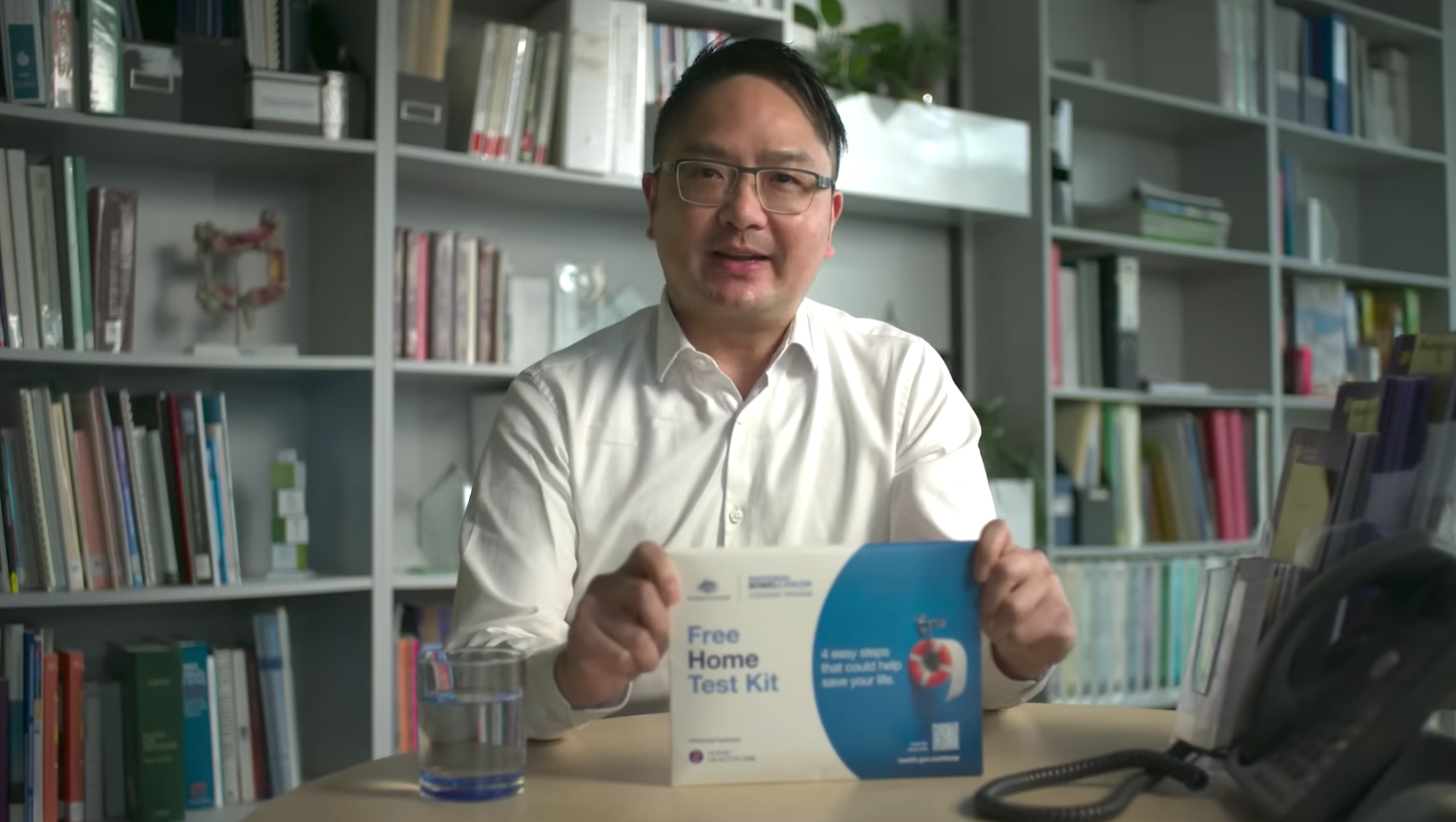
Early Detection &
Cancer Screening Campaigns
MMResearch has extensive experience conducting qualitative research to inform the development of communications aimed at encouraging participation in cancer screening programs.
‘In your hands’ (Cancer Council Victoria)
-
The Victorian Government has set a target in the Victorian Cancer Plan of reaching elimination of cervical cancer in this state by 2030, making Victoria one of the first jurisdictions in the world to eliminate this disease.
The Cancer Council Victoria’s Eliminate Cervical Cancer 5-year strategy aims to accelerate the collective work of eliminating cervical cancer as a public health problem in Victoria by 2030.
The Cancer Council Victoria was interested in developing a campaign to increase participation in the National Cervical Screening Program.
-
We conducted a qualitative research project for Cancer Council Victoria to inform the development of the Elimination Cervical Screening Campaign.
This involved conducting a series of group discussions with women and people with a cervix aged 25-74, who had never participated in cervical screening or are overdue for a CST.
During the groups, we assessed draft concepts in relation to aspects of Attention, Identification, Communication, and Effect, including assessing their potential impact on early detection behaviours, and any unintended consequence of the campaign among the target audience.
-
In early 2024, Cancer Council Victoria released their new campaign “Preventing cervical cancer is in your hands”, which aims to encourage women and people with a cervix to do a Cervical Screening Test every five years, as well as educate people about human papillomavirus (HPV) and the new screening test options.
More information can be found here.
‘Don’t take the risk. Take the test’ (Cancer Council Victoria)
-
Cancer Council Victoria, with support from the Victorian Government Department of Health, wanted to develop a new advertising campaign to build on the success of previous campaigns and contribute to an increase in participation of the National Bowel Cancer Screening program.
-
We conducted a program of qualitative research with Victorians who are eligible for the bowel screening program but not up to date, including some who had never screened and some who were overdue for their next test.
During the research, advertising concepts were tested in relation to the constructs of Attention, Identification, Communication and Effect; and the concept that was assessed as most likely to motivate screening was recommended.
-
The resulting campaign tells the story of Laurie, who explains that if he hadn’t done the free bowel screening test, he would have been dead by now. Laurie was only 52, but based on where the cancer was located, there would have been nothing the doctors could have done to save him if it had not been detected early. His is a story about the effectiveness of the screening program.
The campaign was developed by Bastion, and has been nominated as a finalist for the 2025 Australian Effie Awards.
‘Breast Cancer Doesn’t Wait’ (Cancer Institute NSW)
-
The Cancer Institute NSW was interested in developing a campaign to encourage eligible women to have a breast screen when they are due.
The developmental research for the campaign was conducted in three stages. The first involved message and territory testing prior to the draft concepts being developed. This was followed by initial concept testing. The third stage involved further testing of selected and refined concepts.
-
We conducted a series of group discussions with NSW women aged 50-74, segmented by screening history and location.
During the groups, we assessed both the draft messages and territories, and the later concepts, in relation to aspects of Attention, Identification, Communication, and Effect, including assessing their potential impact on screening behaviours, and any unintended consequence of the campaign among the target audience.
-
The 2023/24 BreastScreen NSW campaign uses motivating, informative ads to educate NSW women aged 50–74 about the importance of prioritising breast screening and to encourage this target group to make an appointment.
‘There’s a lot we can do’. (Cancer Institute NSW)
-
The Cancer Institute NSW was interested in developing a new social marketing campaign to increase participation in the National Bowel Cancer Screening Program (NBCSP).
-
We conducted a program of qualitative research across two stages - an initial stage of concept testing, which led to the refinement of two concepts that were then subject to further detailed evaluation in the second stage of research.
The entire research program comprised sixteen group discussions with men and women aged 50–74, segmented by screening history (Lapsed, Never) and location (Metropolitan, Regional/Rural).
-
The Institute developed a campaign around the concept ‘There’s a lot we can do’, which had Dr Norman Swan explaining the value of the bowel screening program.
As a result of the Cancer Institute NSW’s 2020/21 Bowel Cancer Screening Campaign, there was an estimated increase of 17,806 (8.0%) extra National Program test kits returned during the 17-week campaign and subsequent 8-week lag period.
Early Detection Saves Lives (Cancer Council)
-
Cancer Council Victoria was interested in developing a new campaign to promote early detection health behaviours.
The campaign was thought to be needed as part of a comprehensive strategy to address a decline in the number of people engaged in regular cancer screening since the COVID pandemic.
The objective for the community aspects of the campaign is to increase the number of Victorians practicing early detection health behaviours.
-
We conducted a series of group discussions with men (aged 50-74 years) and women (aged 35-74 years) who had delayed or missed a check-up, cancer screening, or other diagnostic test since the beginning of the COVID pandemic.
During the groups, we assessed draft concepts in relation to aspects of Attention, Identification, Communication, and Effect, including assessing their potential impact on early detection behaviours, and any unintended consequence of the campaign among the target audience.
-
This research was used by the Cancer Council to develop a campaign to inform people about the importance of keeping up to date with screening, with the key message being – ‘Health professionals want to see you, so don’t delay if you notice any unexplained symptoms or need to get up to date on cancer screening’.
The campaign, including advertisements for social and mainstream media, can be seen here.






